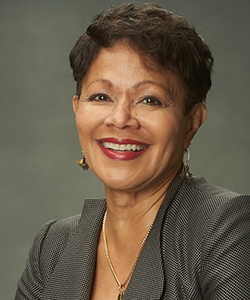CALL TO ACTION
President Biden, here’s what educators need now
By Melinda George and Denise Glyn Borders
February 2021
As the new U.S presidential administration takes shape, we at Learning Forward have hope and confidence that President Biden and Vice President Harris’ leadership will mean great progress for every student and educator in America’s education systems.
Learning Forward is ready to support and advise the new administration as it puts in place policies and funding to ensure high-quality teaching and learning for every student and, in particular, students who have been historically marginalized and underserved.
To that end, Learning Forward sent a letter to the Biden-Harris transition team that outlined our recommendations and requests, which fall into four categories:
We recommend the creation of an Office of Educator Support, with a leader who reports to the secretary of education.
We urge the administration to invest in meaningful research about the quality of and equitable access to professional learning as well as the impact of professional learning on teacher and student outcomes.
We encourage the new administration to incentivize adherence to the definition of professional learning in the Every Student Succeeds Act (ESSA) by embedding the definition in federal requests for proposals, competitive priorities, and subsequent award reporting requirements.
We request funding for educator support, technology as a professional learning resource, increased broadband connectivity and access to devices, and social and emotional supports for educators.
Here is an excerpt of the letter. In this critical year, we ask Learning Forward members to make your voices heard. To learn more, visit lfstage.xyz/advocacy.
EXCERPT FROM THE LETTER TO THE BIDEN-HARRIS EDUCATION TRANSITION TEAM
Learning Forward, the only association focused solely on professional learning, offers the Biden-Harris administration the following recommendations for improving outcomes for teachers, principals, administrators, and students by improving the quality of and access to professional learning for all educators. Our recommendations address not only the immediate needs of educators but also several ways to improve the quality and equity of the supports provided for educators over the long term.
Create an Office of Educator Support.
Learning Forward recommends that a new Office of Educator Support be created at the U.S. Department of Education, with a leader who reports to the secretary of education. This office would serve as a repository of expertise, research and data, and best practices in professional learning.
The office would also focus on how professional learning can drive a more diverse and highly qualified education workforce of teachers, principals, and administrators. In addition, it would provide policy recommendations to ensure equitable access for every student to highly qualified and well-supported educators.
These recommendations would include building a strong workforce, aligning preservice and inservice needs, and promoting widespread use of Learning Forward’s Standards for Professional Learning. Finally, this office could provide oversight for Title IIA of the Every Student Succeeds Act (ESSA).
Invest in meaningful research about professional learning.
Learning Forward believes that research is needed about the quality of and equitable access to professional learning that meets the ESSA definition, as well as about the impact of professional learning on teacher and student outcomes.
Current data show that the least-qualified teachers are placed in schools with the highest percentage of students of color and students living in poverty. Therefore, those schools require evidence-based, carefully selected professional learning aligned to student and educator needs. Learning Forward requests that the Biden administration and the incoming department fund research, including data collection related to the effectiveness of the Title IIA program and evidence from field-based effective practices aligned to the ESSA definition of professional development.
Learning Forward has begun a compilation of data briefs documenting professional learning’s impact, and we would like to see this effort grow to be a national effort. Federal grant programs should prioritize field-informed research on access to and impact of professional learning interventions such as coaching, mentoring, and professional learning communities. Grants should require researchers to provide professional learning related to their findings so that states, school districts, and educators can make research-based decisions on the professional learning in which they choose to engage.
Incentivize adherence to the definition of professional learning in ESSA.
Professional learning must be aligned to the ESSA definition to have its intended impact. Leveraging the definition could be achieved by embedding the definition in federal requests for proposals, competitive priorities, and subsequent award reporting requirements, making professional learning a priority in discretionary grants, emphasizing and requiring alignment in other title programs, and raising awareness of the definition using the bully pulpit of the department. Learning Forward’s Standards for Professional Learning are aligned to the definition and provide a framework and tools to help educators at all levels meet the requirements of the definition.
Increase funding to support educators.
We look forward to a signal from the new administration that it is seeking to bolster funding for educator support, particularly Title IIA, both through President Biden’s fiscal year 2022 budget request and through COVID relief funding. Educator support is more critical than ever as we address COVID-related student learning losses and the demand to accelerate learning.
Increase funding for technology as a professional learning resource.
The pandemic has revealed a tremendous opportunity to leverage technology as an integral aspect of ongoing, job-embedded professional learning. Technology enables increased access to professional learning and increased access for educators to resources, experts, and peers via asynchronous learning and online communities.
During this pandemic, we have witnessed how technology has increased just-in-time supports for educators, bridged geographic distances, connected isolated educators, and helped forge new and different connections and communities. As we move into the next phase of COVID-impacted teaching and learning, the Biden administration and the department must invest in capacity building for educators and systems to use technology-enabled supports for professional learning such as virtual coaching, virtual peer observations, virtual collaboration, and facilitated online communities.
Increase broadband connectivity and access to devices.
The pandemic has revealed the enormous homework gap that exists when some students have access to high-speed internet access at home and others don’t. The homework gap disproportionately affects students from families of color and in low-income households. Many educators themselves experience an access gap.
Common Sense Media estimates that 8% of all teachers (between 300,000 and 400,000 teachers) lack an adequate internet connection for distance teaching. In addition to experiencing challenging circumstances as they teach online, these teachers are missing opportunities to learn from their peers and those outside their districts about how to navigate this difficult time. Learning Forward asks that the new administration prioritize delivering support for home broadband connectivity and appropriate learning devices to all educators and students.
Fund social and emotional supports for educators.
Learning Forward urges the new administration to make funding available for counseling for educators as well as encouraging flexibility in local regulations such as adding mental health days, as educators adjust to the new normal during and following the pandemic. This would include building capacity for trauma-informed teaching and learning, engagement around social justice issues, and facilitating student voice.
The secretary of education, President Biden, Dr. Biden, and other members of the administration occupy positions that provide an impressive opportunity to influence public discourse and policy. Given the pressure on educators to navigate and help students navigate the dual pandemics of coronavirus and social justice movements, we hope that they will use their bully pulpits in the first 100 days and thereafter to acknowledge the importance of supporting and retaining educators.
Learning Forward’s recommendations address not only the immediate needs of educators but also several ways to improve the quality and equity of the supports provided for educators over the long term.

Melinda George is Learning Forward’s chief policy officer, serving on the Learning Forward leadership team and overseeing Learning Forward’s policy and advocacy work. Melinda has been integral to developing strategy and facilitating networks as well as leading the Learning Forward fundraising team.

Denise Glyn Borders served as Learning Forward President and CEO from 2019 to 2022. Before that, she was president of SRI Education, a division at SRI International, where she led three centers – Learning and Development, Technology and Learning, and Education Policy. Previously, Borders was senior vice president and director of the U.S. Education and Workforce Development Group at FHI 360, a global human development organization with an evidence-based research approach.
Recent Issues
LEARNING TO PIVOT
August 2024
Sometimes new information and situations call for major change. This issue...
GLOBAL PERSPECTIVES
June 2024
What does professional learning look like around the world? This issue...
WHERE TECHNOLOGY CAN TAKE US
April 2024
Technology is both a topic and a tool for professional learning. This...
EVALUATING PROFESSIONAL LEARNING
February 2024
How do you know your professional learning is working? This issue digs...










